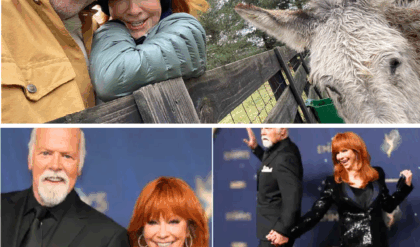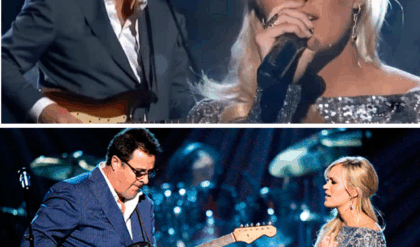Get ready to crank up the volume and let the swamp vibes flow, because Acadiana’s own Dustin Dale Gaspard is about to shake up NBC’s “The Voice” like never before. The 33-year-old singer-songwriter from the heart of Cajun country will make his electrifying first appearance during the Blind Auditions Part 5 episode airing at 8 p.m. ET (7 p.m. CT) on Monday, October 7. As the second-to-last round of auditions wraps up Season 28, Gaspard’s bilingual twist on a soul classic could be the game-changer that propels him into the spotlight, blending his raw Americana roots with the unfiltered energy of the bayou. Fans are already buzzing: Could this be the moment a Cajun voice finally claims the crown?
Picture this: A man who’s wrestled with alligators (or as he calls them, “swamp puppies”), lived out of his car chasing gigs across North America, and poured his soul into songs that echo the whispering cane fields and ancient oaks of rural Louisiana. That’s Dustin Dale Gaspard, the self-proclaimed “Bayou Bard,” whose journey from the marshlands of Cow Island and Mouton Cove in Vermilion Parish to the bright lights of “The Voice” stage is nothing short of inspirational. Growing up in these tight-knit communities, Gaspard was steeped in a world where music wasn’t just entertainment—it was survival, storytelling, and a lifeline to his Acadian heritage. His grandfather’s record collection, packed with swamp pop legends like Percy Sledge, Otis Redding, Sam Cooke, and Fats Domino, ignited a fire in young Dustin that still burns bright today.
Gaspard’s entry into music came later than most. As a high school senior, a chance visit to an open mic night in Lafayette changed everything. Watching a solo singer-songwriter command the room, he felt time stand still. “It changed my world,” he later recalled. “I said, ‘Man, this is what I want for the rest of my life.’ I want to tell stories about the things that are important to me.” Self-taught on guitar, he dove headfirst into songwriting, drawing from influences like Ray LaMontagne, Amos Lee, Jim Croce, and modern folk troubadours such as Gregory Alan Isakov and Nathaniel Rateliff. But in South Louisiana’s dance-happy culture, where zydeco and Cajun tunes rule the night, breaking through as a introspective folk artist wasn’t easy. “You can’t dance to a sad-boy singer-songwriter’s tunes,” he quipped in an interview.
To build his name and secure gigs, Gaspard formed DG & The Freetown Sound, a high-energy rock ‘n’ soul band blending blues, R&B, and swamp pop with pulsating horns, electric guitars, and thumping bass lines. As frontman, he channeled Van Morrison-esque melodies and delivered performances that kept audiences on their feet. The band dropped singles and built a local following, but Gaspard never abandoned his solo roots. Over a decade of grinding in the deep South, he released EPs like “Porcelain Prayer Tapes” (2019) and “In Callow Comfort” (2020), showcasing his cryptic lyricism and evolving style.
The pandemic hit hard, scattering his bandmates and forcing a pivot. Returning to Vermilion Parish in 2020, Gaspard channeled grief over his late grandparents into his debut full-length album, “Hoping Heaven Got A Kitchen,” released in March 2022. Recorded raw and authentically at producer Chad Viator’s home studio, the 10 original tracks plus two swamp pop remakes paint an intimate portrait of rural life, family, and mysticism. “These songs are for my family, my grandparents, my people of Vermilion Parish and all the people of south Louisiana,” he said. Featuring Grammy-nominated talents like Eric Adcock and Chris Stafford, the album earned rare Grammy considerations in Best American Roots Performance, American Roots Song, and Best Americana Album—validating years of hustle.
But Gaspard didn’t stop there. His latest project, “Avec Le Courrant,” dives deeper into his heritage with banjo-driven bilingual storytelling about his Acadian ancestors’ exile, fusing Americana, folk, blues, and Cajun French. A prolific touring artist, he’s logged over 100,000 miles, performing in listening rooms, house concerts, and festivals across the U.S., Canada, and beyond. In 2025, he teamed up with banjo virtuoso Tanner Bingaman for a 10,000-mile tour of the Northwest, selling out shows and captivating audiences with their duo chemistry. From the Acadiana Center for the Arts sold-out release party to showcases at Folk Alliance International, Gaspard’s conviction on stage—armed with guitar, banjo, tambourine, and harmonica—has made him a staple in the roots scene.
Now, all that groundwork leads to “The Voice.” Season 28, which premiered on September 22, features a powerhouse coaching panel: returning champs Reba McEntire, Niall Horan, Snoop Dogg, and Michael Bublé, each vying for a three-peat after recent wins. Hosted by Carson Daly, the show airs Mondays and Tuesdays at 8/7c on NBC, with next-day streaming on Peacock. Gaspard’s audition promises to be a historic moment: the first-ever performance incorporating Cajun French on the show. Teasing his appearance on Facebook, he urged fans: “Tune in to #TheVoice and see how far this Cajun boy has taken his people and his dreams.”
Imagine the coaches’ reactions when Gaspard straps on his guitar, blows into a harmonica, and delivers a swamp pop-infused rendition of Sam Cooke’s “Bring It On Home to Me”—slipping seamlessly into Cajun French mid-song. His “swamp pup music”—a potent brew of New Orleans R&B, country western, and Cajun traditions—has already earned raves in previews. Niall Horan called it “one of the best auditions I’ve ever seen,” praising his “proper, unique, full of character voice.” Reba McEntire gushed, “You’re different, you’re unusual, you’re refreshing, and you can sing and play.” Snoop Dogg bonded over shared Louisiana roots, singing back to him and noting family ties to alligator-wrestling kin. Michael Bublé, flexing his French, declared him “what the people are asking for”—authenticity incarnate.
In a thrilling four-chair turn, Gaspard ultimately chose Team Niall, joining a squad coached by the two-time winner who’s all about voices that stand out. Horan was ecstatic: “The Voice gods are with me and they came over to the good side.” For Gaspard, it’s validation after years of nomadic grit—living in his car, advocating for Cajun French beyond traditional zydeco, and pushing boundaries in a genre often overlooked.
Louisiana’s track record on “The Voice” is strong but bittersweet: runners-up like Gyth Rigdon and Meghan Linsey, fourth-place finisher Koryn Hawthorne from Abbeville. No Cajun winner yet, but Gaspard’s unique flavor—Americana with a bayou twist—could change that. Social media is ablaze, with locals cheering: “We’re watching the Voice in support of our local guy!” Posts hail his progress, sharing clips and urging votes.
What makes Gaspard so captivating? It’s his authenticity. In a sea of polished pop, he brings the grit of the Gulf Coast—tales of exile, family, and joie de vivre wrapped in bilingual poetry. His stage presence, honed from house concerts to sold-out halls, commands attention. And as he eyes more releases and tours, “The Voice” could catapult him global, inspiring a new generation to embrace Cajun roots music.
Don’t miss this: Tune in Monday, root for the Bayou Bard, and witness history. Dustin Dale Gaspard’s story isn’t just about singing—it’s a testament to chasing dreams through the marsh, one soulful note at a time. Who knows? This could be the start of something legendary. Grab your popcorn, crank the AC, and let the good times roll.





